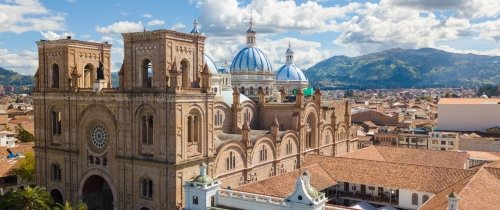
Study Abroad in Ecuador
Explore various environmental challenges of today and tomorrow through an integrated lens of science and humanities in place-based courses.
Study Global Environmental Challenges in Ecuador on a faculty-led program with students from Rhodes College and Sewanee: The University Of The South. This program explores various environmental challenges of today and tomorrow through an integrated lens of science and humanities in place-based courses.

